Have you ever noticed your furry friend suddenly sneezing?
While it might look adorable, frequent sneezing in dogs can sometimes indicate underlying health issues. As a responsible pet owner, it’s essential to understand why your dog is sneezing and what you can do to help.
In this comprehensive guide, we’ll explore the various reasons behind your dog’s sneezing and provide you with valuable insights to ensure your canine companion stays happy and healthy.
Contents Overview
Common Causes of Dog Sneezing
- Environmental Allergies:
- Description: Just like humans, dogs can develop allergies to environmental factors such as pollen, dust, mold, and other airborne particles. When a dog inhales or comes into contact with these allergens, it can trigger an allergic reaction, leading to sneezing.
- Symptoms: Along with sneezing, dogs with environmental allergies may exhibit symptoms such as itching, redness, inflammation of the skin, watery eyes, and nasal discharge.
- Common Allergens: Pollen from grasses, trees, and weeds is a common allergen for dogs. Additionally, household dust mites, mold spores, and certain types of grass can also provoke allergic reactions.
- Foreign Objects:
- Description: Dogs are naturally curious animals that love to explore their surroundings by sniffing and investigating objects. In the process, they may accidentally inhale or ingest foreign particles such as grass seeds, dust, or small debris, which can irritate their nasal passages and lead to sneezing.
- Symptoms: In addition to sneezing, dogs with foreign objects in their nasal passages may exhibit signs of discomfort, such as pawing at their nose, rubbing their face against surfaces, or showing signs of nasal congestion.
- Prevention: Keep your dog away from areas where they may encounter potential hazards such as tall grass, dusty environments, or small objects that could be inhaled.
- Respiratory Infections:
- Description: Viral or bacterial infections affecting the respiratory system can cause sneezing in dogs. Common respiratory infections in dogs include kennel cough (canine infectious tracheobronchitis), canine influenza, and pneumonia.
- Symptoms: Along with sneezing, dogs with respiratory infections may experience coughing, nasal discharge (clear, yellow, or green), fever, lethargy, and decreased appetite.
- Transmission: Respiratory infections in dogs are highly contagious and can spread through direct contact with infected dogs, contaminated objects, or airborne droplets from coughing or sneezing.
- Nasal Irritants:
- Description: Exposure to strong odors, cigarette smoke, chemical fumes, or other irritants can irritate a dog’s nasal passages, leading to sneezing.
- Symptoms: Dogs exposed to nasal irritants may exhibit sneezing, nasal discharge, watery eyes, coughing, and signs of discomfort or distress.
- Prevention: Minimize your dog’s exposure to potential irritants by avoiding smoking near your pet, using pet-safe cleaning products, and keeping them away from areas with strong chemical odors.
- Dental Issues:
- Description: Dental problems such as infected teeth, gum disease (gingivitis or periodontitis), or oral abscesses can sometimes lead to sinus infections, causing sneezing in dogs.
- Symptoms: Along with sneezing, dogs with dental issues may exhibit signs such as bad breath, swollen or bleeding gums, difficulty chewing, reluctance to eat, pawing at the mouth, and overall discomfort.
- Prevention: Practice good dental hygiene for your dog by providing regular dental care, including brushing their teeth, offering dental chews or toys, and scheduling routine dental check-ups with your veterinarian.
Less Common Causes
- Nasal Tumors:
- Description: While less common than other causes, nasal tumors can occur in dogs and lead to sneezing as a symptom. These tumors can develop within the nasal cavity or sinuses and may be benign (non-cancerous) or malignant (cancerous).
- Symptoms: Dogs with nasal tumors may exhibit persistent sneezing, nasal discharge (which can be bloody), nosebleeds, facial swelling, difficulty breathing, and changes in behavior such as lethargy or decreased appetite.
- Diagnosis: Diagnosis of nasal tumors typically involves imaging tests such as X-rays, CT scans, or MRIs, along with nasal endoscopy or biopsy to confirm the presence of tumors and determine their nature (benign or malignant).
- Treatment: Treatment options for nasal tumors may include surgical removal, radiation therapy, chemotherapy, or a combination of these approaches, depending on the size, location, and nature of the tumors. The prognosis can vary depending on the tumor’s stage and whether it has spread to surrounding tissues.
- Brachycephalic Syndrome:
- Description: Brachycephalic syndrome is a condition commonly found in breeds with short noses and flat faces, such as Bulldogs, Pugs, Boston Terriers, and Shih Tzus. These breeds often have constricted nasal passages, elongated soft palates, and other anatomical abnormalities that can lead to breathing difficulties and sneezing.
- Symptoms: Dogs with brachycephalic syndrome may exhibit sneezing, snorting, wheezing, noisy breathing (especially during exertion or excitement), gagging, coughing, and difficulty breathing, especially in hot or humid conditions.
- Complications: Brachycephalic dogs are more prone to respiratory issues, heat intolerance, and anesthesia complications due to their unique anatomy. Severe cases may require surgical correction of airway abnormalities to improve breathing and quality of life.
- Management: Pet owners can help manage brachycephalic syndrome by avoiding strenuous exercise in hot weather, providing a cool and well-ventilated environment, using a harness instead of a collar for walks, and maintaining a healthy weight to reduce respiratory strain.
What to Do If Your Dog Is Sneezing
If you notice your dog sneezing, it’s essential to take appropriate steps to identify the underlying cause and provide necessary care. Here’s a comprehensive guide on what to do if your dog is sneezing:
- Monitor Symptoms:
- Observation: Pay close attention to your dog’s sneezing episodes and any accompanying symptoms. Note the frequency, duration, and severity of the sneezing, as well as any other signs such as nasal discharge, coughing, lethargy, or changes in behavior.
- Documentation: Keep a journal or record of your dog’s sneezing patterns and symptoms. This information can help your veterinarian make an accurate diagnosis and determine the best course of action.
- Assess the Environment:
- Allergen Exposure: Consider potential allergens or irritants in your dog’s environment that may be triggering the sneezing. This could include pollen, dust, mold, cigarette smoke, strong odors, or chemical fumes.
- Indoor Air Quality: Take steps to improve indoor air quality by using air purifiers, regularly vacuuming and dusting, washing bedding and toys, and keeping windows closed during high pollen seasons.
- Seek Veterinary Care:
- Schedule an Appointment: If your dog’s sneezing persists or is accompanied by other concerning symptoms such as nasal discharge, coughing, lethargy, or loss of appetite, schedule a veterinary appointment promptly.
- Professional Examination: A veterinarian will perform a thorough physical examination of your dog, including assessing their nasal passages, throat, and overall health. Diagnostic tests such as blood work, nasal swabs, X-rays, or allergy testing may be recommended to determine the underlying cause of the sneezing.
- Follow Treatment Recommendations:
- Medication: Depending on the underlying cause of your dog’s sneezing, your veterinarian may prescribe medications such as antihistamines, antibiotics, corticosteroids, decongestants, or nasal sprays to alleviate symptoms and treat the underlying condition.
- Surgical Intervention: In cases of nasal obstructions, dental issues, or nasal tumors, surgical intervention may be necessary to address the underlying problem and provide relief for your dog.
- Provide Comfort and Support:
- Comfort Measures: Offer your dog a comfortable and quiet environment to rest and recover. Keep them hydrated, provide nutritious meals, and offer gentle encouragement and reassurance.
- Avoid Irritants: Minimize your dog’s exposure to potential allergens, irritants, or environmental triggers that may exacerbate sneezing. This may include avoiding outdoor activities during peak pollen seasons or limiting exposure to cigarette smoke and strong chemical odors.
- Follow-Up Care:
- Monitoring: Keep track of your dog’s progress during treatment and follow-up appointments with your veterinarian as recommended. Report any changes or concerns to your veterinarian promptly.
- Preventive Measures: Take proactive steps to prevent future episodes of sneezing by implementing appropriate preventive measures, such as regular veterinary check-ups, vaccination, parasite control, and maintaining good dental hygiene.
Bottom Line
Understanding why your dog is sneezing is crucial for ensuring their well-being. From environmental allergies to respiratory infections, there are various reasons why your canine companion may be experiencing sneezing episodes.
By being proactive and seeking veterinary care when necessary, you can help alleviate your dog’s discomfort and ensure they lead a happy, sneeze-free life. Stay vigilant, stay informed, and most importantly, cherish every moment with your beloved furry friend.

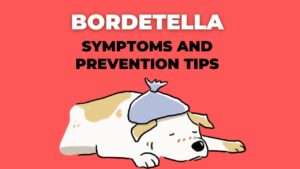



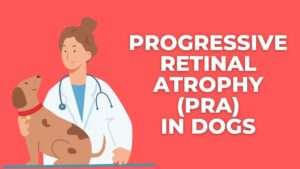



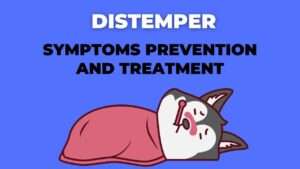







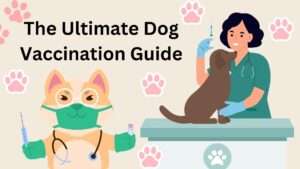

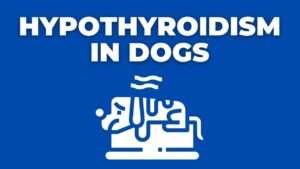
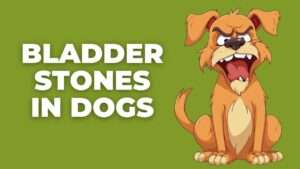

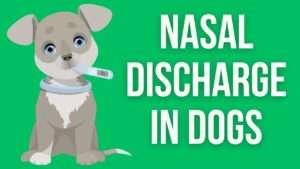

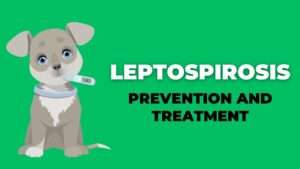
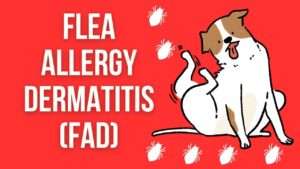

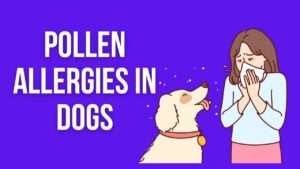








+ There are no comments
Add yours